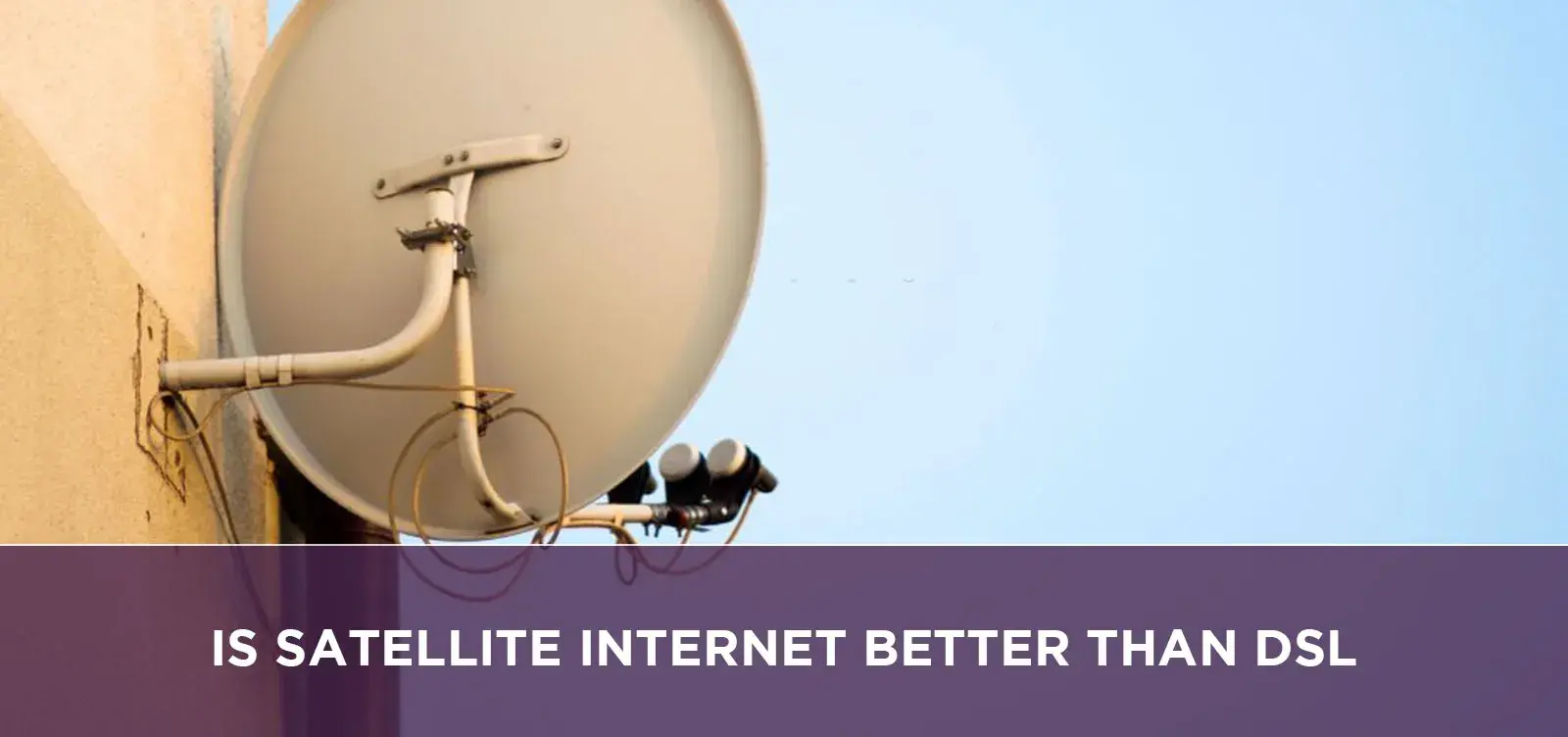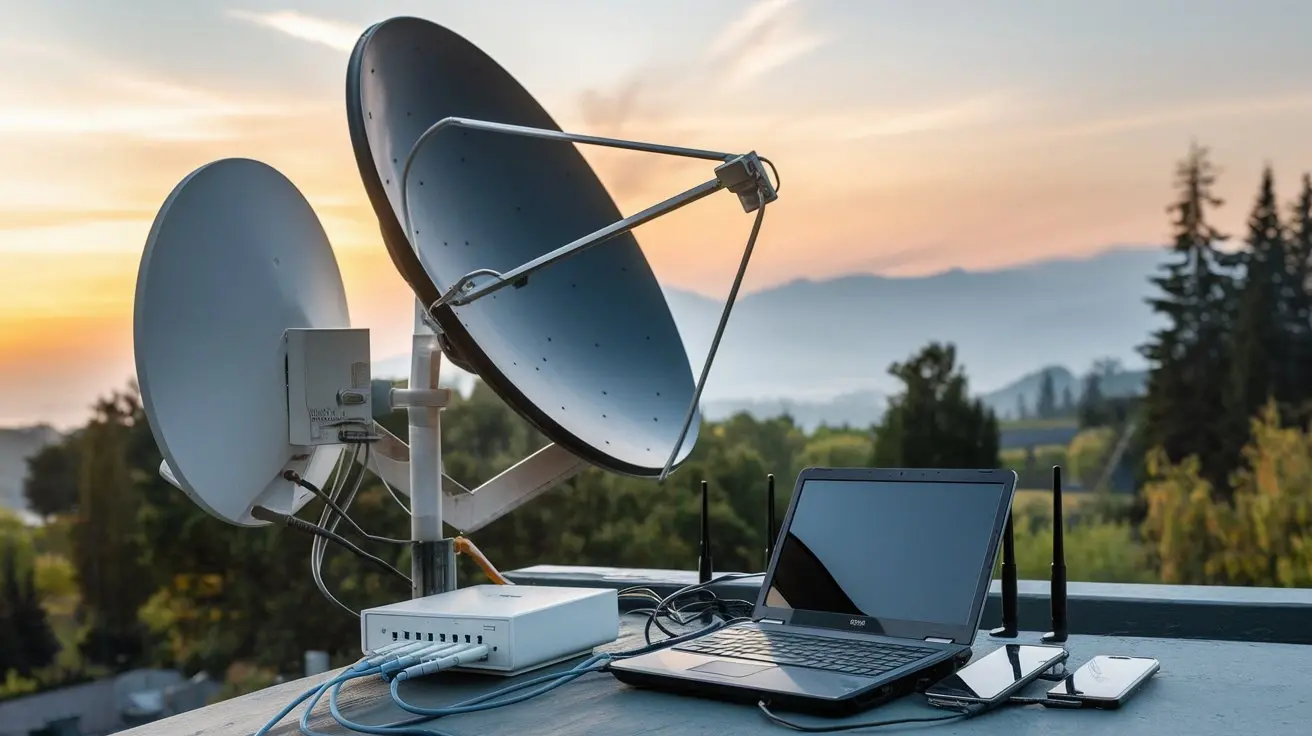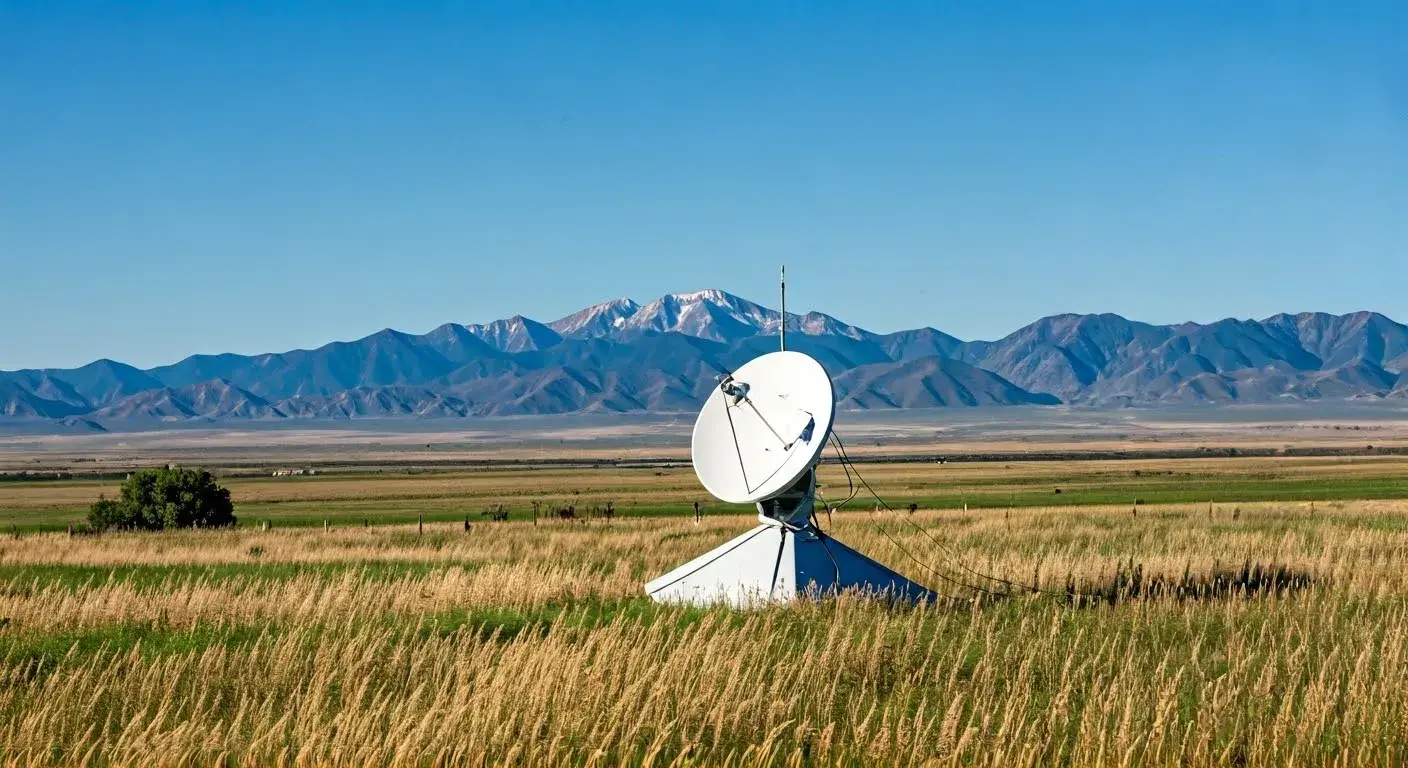-
Posted on: 16 Oct 2023

-
The internet is become a necessary component of everyday living in our technologically linked environment. However, the choices for the appropriate connection depending on your requirements might be very daunting. This post will explore a comparison of DSL vs satellite internet to provide you with knowledge so you may decide wisely. We will go over the advantages and disadvantages of every, offering opinions based on both professional knowledge and experience.
A Quick Overview
First, let us quickly review DSL and satellite internet:
Satellite Internet
Communication satellites in orbit around Earth are the basis of satellite internet. It's perfect for isolated areas as it's easily available in almost any place.
DSL (Digital Subscriber Line)
Conversely, DSL, Digital Subscriber Line, takes advantage of already-existing phone lines to provide an online connection. It's readily accessible in cities.
Satellite Internet: The Pros and Cons
Does Satellite Internet Outperform DSL? Allow us to examine satellite internet more closely and compare it.
Speed and Accessibility
The nicest thing about satellite internet is its broad availability; its speeds are respectable. For those who live in rural or isolated places where DSL is often lacking, it's a godsend.
Latency Woes
Among the negatives is delay. Satellite internet sometimes has increased latency due to the signal's lengthy trip to space and back, which influences real-time uses including online gaming and video conferences.
Weather Dependency
Unfavorable weather might affect satellite internet service. Strong rain or snow might cause the signal to be disrupted, thereby slowing down or maybe causing a loss of connection.
Installation Hassles
Satellite internet is set up using a dish on your property. Although it may not always be possible, a clear line of sight to the satellite is very vital.
Data Caps
Data limitations abound on many satellite internet services. Beyond these limitations might result in extra fees or slowed down speeds.
Ideal for Remote Areas
Should you live in a rural or distant place where DSL is not accessible, satellite internet might be your best choice. It closes the digital gap.
DSL: The Pros and Cons
Let us now concentrate on DSL and investigate its benefits and drawbacks.
Reliable Speed
Generally speaking, DSL delivers lower latency speeds and more reliable performance than satellite internet. This makes it perfect for video conferences and online gaming among other pursuits.
Distance Matters
Generally speaking, DSL delivers lower latency speeds and more reliable performance than satellite internet. This makes it perfect for video conferences and online gaming among other pursuits.
Urban Preference
Your distance from the central office of the provider determines DSL's speed. Your connection may slow down the farther you are.
Installation Simplicity
Setting up DSL normally requires little effort. You'll need a DSL modem, and your current phone line may be used for service.
No Data Caps
DSL usually does not have data limits, unlike satellite internet. You can browse the internet without worrying about running into more data than allowed.
Is Satellite Internet Better Than DSL?
To respond to the query, "Is Satellite Internet Better Than DSL?" your location and your requirements will eventually determine the response. For rural locations without DSL connection, satellite internet is a lifeline; yet, latency may make it less than ideal for real-time uses.
Conversely, DSL excels in suburban and metropolitan environments and offers consistent speeds for different online activities.
FAQs
Is satellite internet faster than DSL?
While satellite internet offers decent speeds, DSL generally provides more consistent and lower latency speeds, making it a better choice for activities like gaming and video conferencing.
What are the primary advantages of satellite internet?
Satellite internet excels in accessibility, bridging the digital divide in remote areas where DSL isn't available. It's also unaffected by the distance from providers' central offices.
Can adverse weather affect satellite internet?
Yes, heavy rain or snow can disrupt satellite internet signals, causing slower speeds or even loss of connectivity.
Is DSL available in remote areas?
DSL is primarily available in urban and suburban areas. Remote locations often have no DSL access.
How do I set up satellite internet?
Setting up satellite internet involves installing a satellite dish on your property with a clear line of sight to the satellite in the sky.
Are there data caps with DSL?
DSL plans typically do not come with data caps, allowing you to browse the web without worrying about data limits.
Conclusion
No one-size-fits-all solution exists in the continuous argument over "Is Satellite Internet Better Than DSL?" Your particular location and requirements will guide your decision. Think about the benefits and drawbacks of every decision with knowledge. There is a perfect internet solution ready for you regardless of your location—urban center or rural countryside.
Don't wait! Transform your internet experience with HughesNet. Dial (888) 797-3141 and speak to our experts right away.





